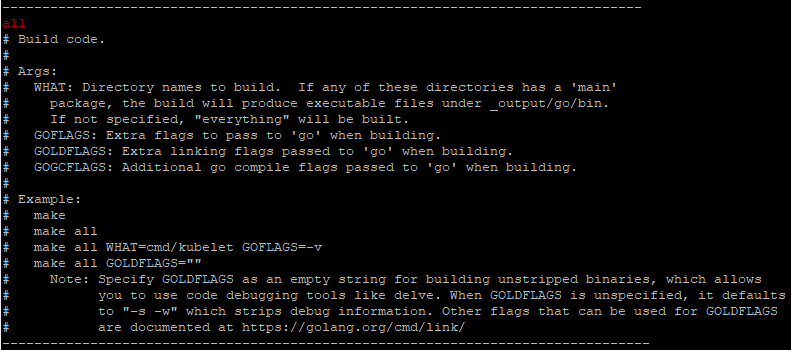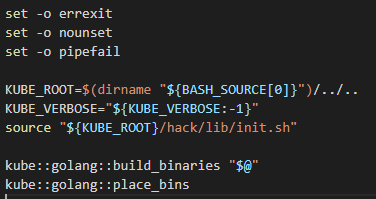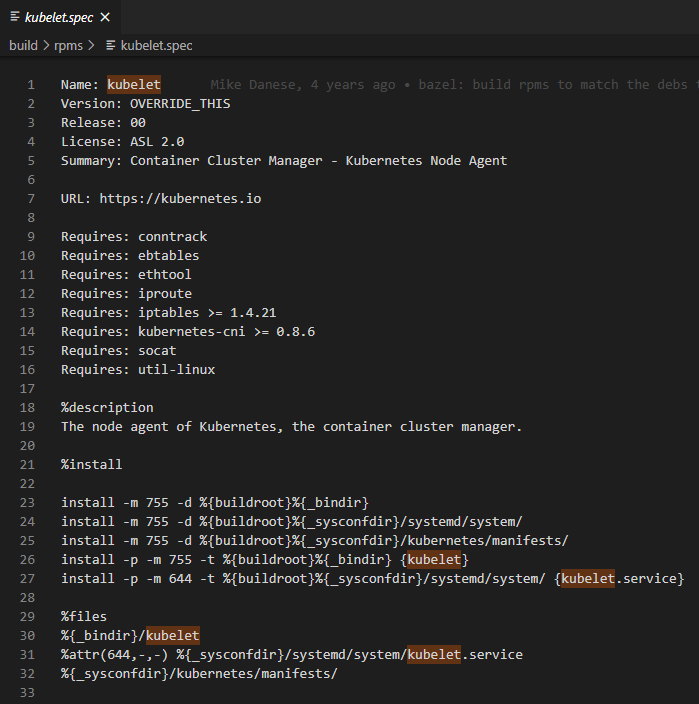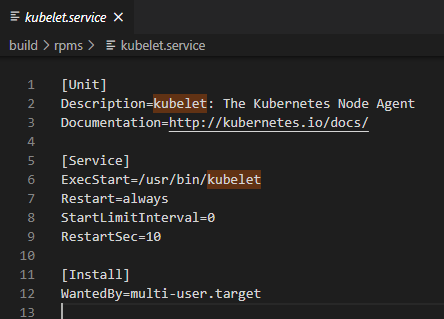How to build and install Kubernetes Kubelet for your customized Kubelet
Kubelet doesn’t provide all the features we want. For example, setting cgroup or oom kill policy.
So, I tested to build and install Kubelet using Kubernetes project.
Prepare build environment
First, Go has to be installed. Some K8S Version matches old Go version. I tested to build v1.16.3 K8S Project, and i should use the go v1.12.15 version. The latest project has no problem with the latest go version (tested with v1.15.6).
- related git issue: https://github.com/kubernetes/kubernetes/issues/78845
Second, some packages should be installed. I installed gcc package. I failed to find the exact list yet. So, check the list on the error message.
How to Build Kubelet
Kubernetes project has a Makefile on the project root path, it has a general build feature with go and a bazel build feature.
You can use ‘make all’ and set a target using ‘WHAT=’ argument like below.
make all WHAT=cmd/kubelet GOFLAGS=-v
The build guide using Makefile (/build/root/Makefile) capture below.

And the ‘make all’ command uses the ‘/hack/make-rules/build.sh’ script.

It builds a binary for the system version where the make is running in default setting. And it places this binary to the path ‘/{k8s project dir}/_output/bin’.
How to Install
In general, we install Kubelet using yum or apt.
Let’s check the rpm spec file from k8s v1.17 version.
The k8s project’s ‘/build/rpms/’ directory has been deleted from v1.18 version in the commit. I will check the latest kubelet.spec file and update this information soon, if possible.

It copies the Kubelet binary to the system (like ‘/usr/bin’). And it adds systemd service file (image below) to the systemd system path (like ‘/usr/lib/systemd/system/’ or ‘/etc/systemd/system/’.

You can rpm-build your binary using the spec file and install Kubelet using apt or yum.
Installation Test
You can easily test your binary on the running k8s environment.
Follow the steps
- Access your node for Kubelet test
- Stop the Kubelet
sudo systemctl stop kubelet - Install your binary
Backup the original binary before run the command below
sudo mv ./kubelet /usr/bin - Check the new Kubelet version
kubelet --version - Start the Kubelet
sudo systemctl start kubelet - Check the node status and Kubelet version
kubectl get nodes
You can check the Ready status node and the version same with the Kubelet version from the step 3.
Build Test Environment/Kubernetes Version
- Ubuntu 18.04
- Kubernetes v1.16.3, v1.17.9, v1.18.0 and v1.19.0
Kubelet Connection Test Environment/Kubernetes Version
- Ubuntu 18.04
- Kubernetes v1.16.3
Source
- https://github.com/kubernetes/kubernetes

Leave a comment